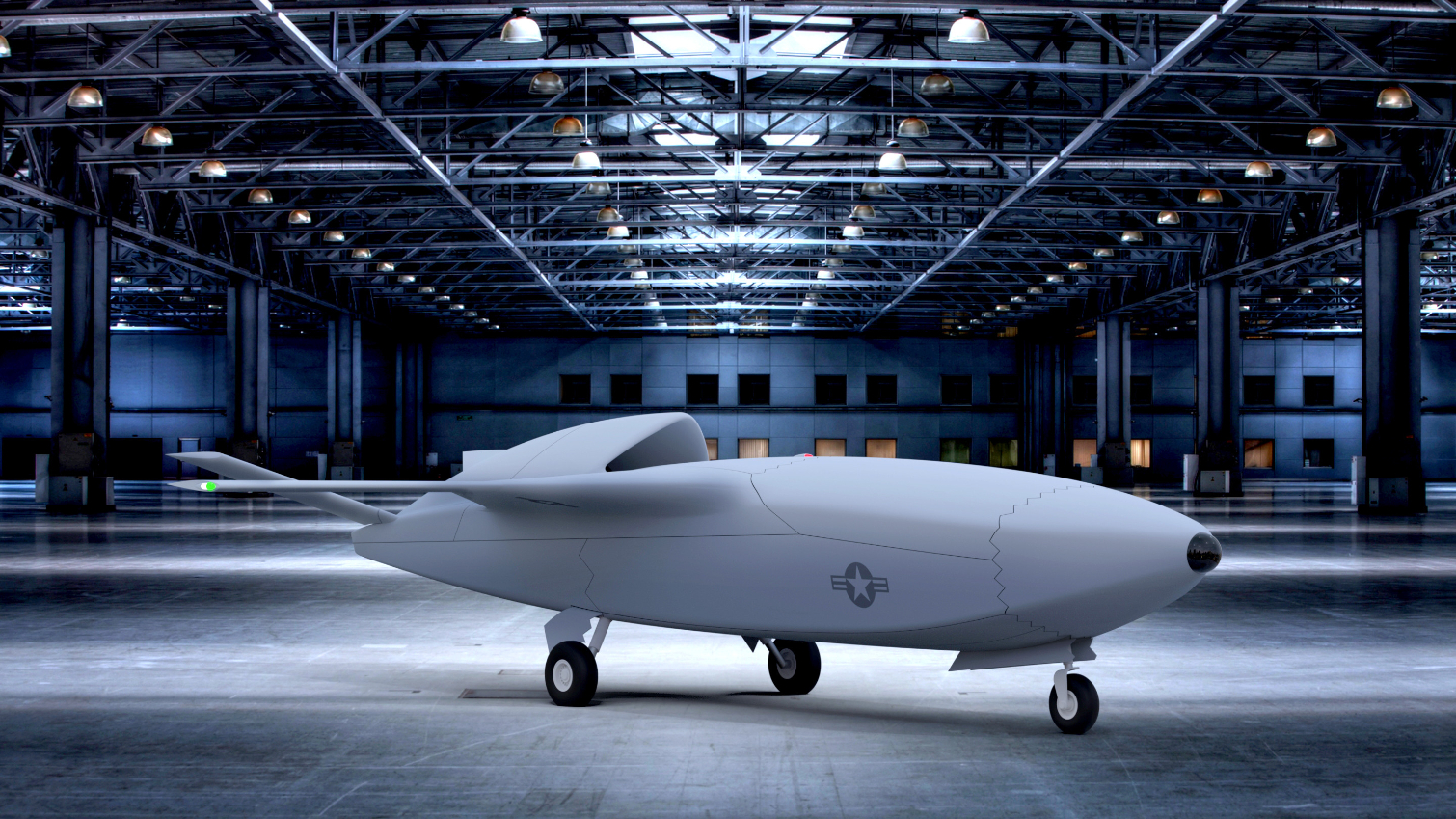Project Skyborg Could Put Air Force AI Combat Drones In the Sky by 2023
A set of AI-powered fully autonomous combat drones with no pilots named Skyborg? Great idea.
Here at Tom’s Guide our expert editors are committed to bringing you the best news, reviews and guides to help you stay informed and ahead of the curve!
You are now subscribed
Your newsletter sign-up was successful
Want to add more newsletters?

Daily (Mon-Sun)
Tom's Guide Daily
Sign up to get the latest updates on all of your favorite content! From cutting-edge tech news and the hottest streaming buzz to unbeatable deals on the best products and in-depth reviews, we’ve got you covered.

Weekly on Thursday
Tom's AI Guide
Be AI savvy with your weekly newsletter summing up all the biggest AI news you need to know. Plus, analysis from our AI editor and tips on how to use the latest AI tools!

Weekly on Friday
Tom's iGuide
Unlock the vast world of Apple news straight to your inbox. With coverage on everything from exciting product launches to essential software updates, this is your go-to source for the latest updates on all the best Apple content.

Weekly on Monday
Tom's Streaming Guide
Our weekly newsletter is expertly crafted to immerse you in the world of streaming. Stay updated on the latest releases and our top recommendations across your favorite streaming platforms.
Join the club
Get full access to premium articles, exclusive features and a growing list of member rewards.
The US Air Force is now officially working in building fully autonomous, unmanned combat drones that can be controlled solely by artificial intelligence. The program name: Skyborg.

The Air Force office of Strategic Development Planning and Experimentation at the Air Force Research Laboratory has announced that it is working on “fielding a prototype Autonomous, Unmanned Combat Air Vehicle as an Early Operational Capability as early as 2023.”
On March 15, the SDPE sent a request to the usual suspects — from Lockheed Martin to Boeing to Northrop Grumman — and other players in the AI industry complex, asking them to start market research and concept of operations analysis. The office is asking specifically if it would be possible to have these bots in the air by 2023 with the current technology.
In a USAF press release, Skyborg program manager Ben Tran says “there was a lot of analysis that determined what was put into the [request]. This is our first step in determining what the current state of the art is from a technology perspective and from a systems engineering perspective to provide that Early Operational Capability in 2023.”
Force by numbers powered by AI
The Air Force claims that it is looking into low-cost, attritable, unmanned air vehicles that are autonomous thanks to artificial intelligence. Tran says that they are aware that US adversaries are investing in disposable low-cost AI-powered autonomous combat systems.
If you have these kind of low cost swarms of robotic combat vehicles, Tran says, you can be a force multiplier for our Air Force.
Get instant access to breaking news, the hottest reviews, great deals and helpful tips.
According to Matt Duquette, an engineer working in Skyborg for the Air Force Research Laboratory’s Aerospace Systems Directorate, this program is “a vessel for AI technologies that could range from rather simple algorithms to fly the aircraft and control them in airspace to the introduction of more complicated levels of AI to accomplish certain tasks or subtasks of the mission.” This seems to mean that AI may have full control of the plane at times and/or work in stuff like aiming and firing at enemies.
Right now, there’s no particular type of aircraft set for Skyborg — except for the “combat” part. Patrick Berry, who works for the laboratory in sensor technology, says that they are looking at a range of vehicle performance parameters. Tran says that Skyborg is not scheduled for a specific airplane, and the program emphasizes the importance of an open architecture for both sensors and AI.
That said, Tran says that the Skyborg program is working now with the 412th Test Wing at Edwards Air Force Base, California, and the Emerging Technologies Combined Test Force on “small, fast-moving UAVs to test the current state of the art in AI and autonomy in those airplanes and the ability for them to autonomously team and collaborate in flight.”
Inspired by the gaming industry
Major Ryan Carr, at the AFRL Aerospace Systems Directotrate, says that machine learning progress has inspired to take this decisive action.
“We are very inspired by those results and excited by things that are going on in the gaming industry for instance,” he says, “we expect that technology will continue to mature fairly rapidly. What we really need to understand is, ‘How do you take that and do something like bring it to the real world and fly with it for example?’ The thing we’re trying to get at early on is how to do that safely [...] That’s really what we want to focus our attention on in this early period.” For the Air Force, the way to do this is Skyborg.
Skyborg… haven’t these guys watched enough post-apocalyptic movies in which AI-controlled robots annihilate humanity to know that name is a clear invocation of some major Michael Bay-scale chaos and destruction?
On second thought, maybe they have watched all the movies, and that’s they are making this before the Russians or the Chinese.
Jesus Diaz founded the new Sploid for Gawker Media after seven years working at Gizmodo, where he helmed the lost-in-a-bar iPhone 4 story and wrote old angry man rants, among other things. He's a creative director, screenwriter, and producer at The Magic Sauce, and currently writes for Fast Company and Tom's Guide.
 Club Benefits
Club Benefits











